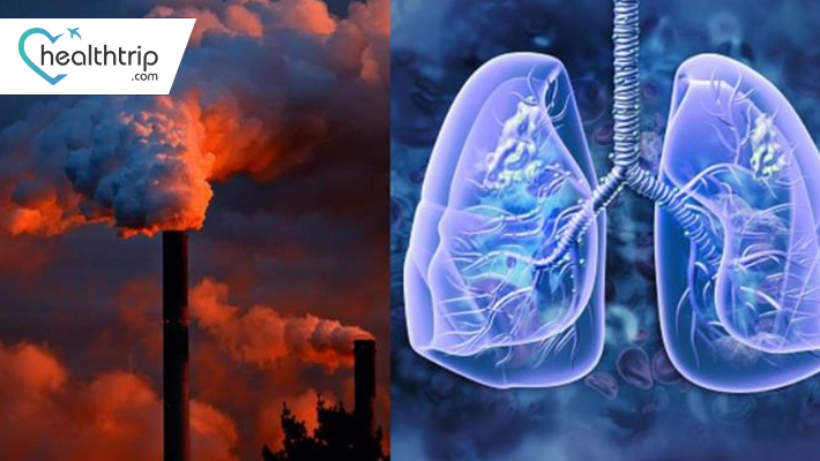
How to Protect Your Lungs from Pollution: A Comprehensive Guide
31 Aug, 2023
Introduction
In an increasingly urbanized world, exposure to pollution has become a concerning reality. Air pollution, in particular, can have detrimental effects on respiratory health. As the primary organs responsible for breathing, our lungs are particularly vulnerable to the harmful effects of pollution. In this comprehensive guide, we will explore effective strategies to safeguard your lung health and mitigate the impact of pollution.
Understand the Risks
Types of Pollutants and Their Sources
Before taking protective measures, it's essential to understand the types of pollutants and their sources.
Transform Your Beauty, Boost Your Confidence
Find the right cosmetic procedure for your needs.

We specialize in a wide range of cosmetic procedures

Common Pollutants: Particulate Matter, Nitrogen Dioxide, Ozone, and VOCs
Common pollutants include particulate matter (PM2.5 and PM10), nitrogen dioxide (NO2), ozone (O3), and volatile organic compounds (VOCs).
Diverse Sources: Vehicles, Industries, Indoor Activities
Sources range from vehicle emissions and industrial processes to indoor activities like cooking and smoking.
Monitor Air Quality
Using Reliable Air Quality Index (AQI) Apps and Websites
Stay informed about the air quality in your area. Use reliable air quality index (AQI) apps or websites to receive real-time updates on pollution levels.
Real-time Updates for Informed Decision-making
This information can help you plan outdoor activities and adjust your routines accordingly.
Limit Outdoor Exposure
Protecting Yourself During High Pollution Hours
On days with poor air quality, limit outdoor activities, especially during peak pollution hours.
Optimal Times for Outdoor Activities
Early mornings or late evenings might offer relatively cleaner air for exercise or leisure.
Most popular procedures in
Total Hip Replacemen
Upto 80% off
90% Rated
Satisfactory

Total Hip Replacemen
Upto 80% off
90% Rated
Satisfactory

Breast Cancer Surger
Upto 80% off
90% Rated
Satisfactory

Total Knee Replaceme
Upto 80% off
90% Rated
Satisfactory

Total Knee Replaceme
Upto 80% off
90% Rated
Satisfactory

Create a Clean Indoor Environment
Equipping Living Spaces with Proper Ventilation
Since indoor air pollution can be equally harmful, ensure proper ventilation in your living spaces.
Utilizing HEPA Filters in Air Purifiers
Use air purifiers equipped with HEPA filters to trap particles and reduce indoor pollutants.
Choose Protective Masks
Importance of Filtering Fine Particles
In heavily polluted areas, wearing masks specifically designed to filter out fine particles can provide some protection during outdoor activities.
Effectiveness of N95 Masks
N95 masks are particularly effective in this regard.
Stay Hydrated
Hydration's Role in Maintaining Respiratory Tract Health
Drinking sufficient water helps keep your respiratory tract moist and promotes efficient mucous production, aiding in the expulsion of pollutants and irritants.
Maintain a Healthy Lifestyle
Strengthening the Immune System Against Pollution
A strong immune system can better combat the effects of pollution.
Balancing Diet, Exercise, Stress, and Smoking
Eat a balanced diet rich in antioxidants, exercise regularly, manage stress, and avoid smoking to support overall lung health.
Plant Indoor Greenery
Air-purifying Abilities of Houseplants
Certain houseplants, like snake plants and peace lilies, have air-purifying properties.
Enhancing Indoor Air Quality
They can help filter indoor air and improve overall air quality.
Use Natural Cleaning Products
Avoiding Harmful VOCs with Natural Alternatives
Traditional cleaning products can release harmful VOCs into the air.
Reduction of Indoor Pollutants
Opt for natural cleaning alternatives to reduce indoor pollutant levels.
Advocate for Change
Participating in Local Initiatives for Cleaner Air
Participate in local initiatives that promote cleaner air and advocate for policies that address pollution.
Pushing for Pollution-reducing Policies
By raising awareness and pushing for positive change, you contribute to a healthier environment for everyone.
Conclusion
A Multifaceted Approach to Lung Health Protection
Protecting your lungs from pollution requires a multifaceted approach that involves understanding the risks, monitoring air quality, and adopting healthy habits. By being proactive and making conscious choices, you can reduce your exposure to pollutants and safeguard your lung health. Remember, a cleaner environment benefits not only your respiratory well-being but also the health of the community at large.
Wellness Treatment
Give yourself the time to relax
Lowest Prices Guaranteed!

Lowest Prices Guaranteed!






